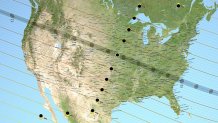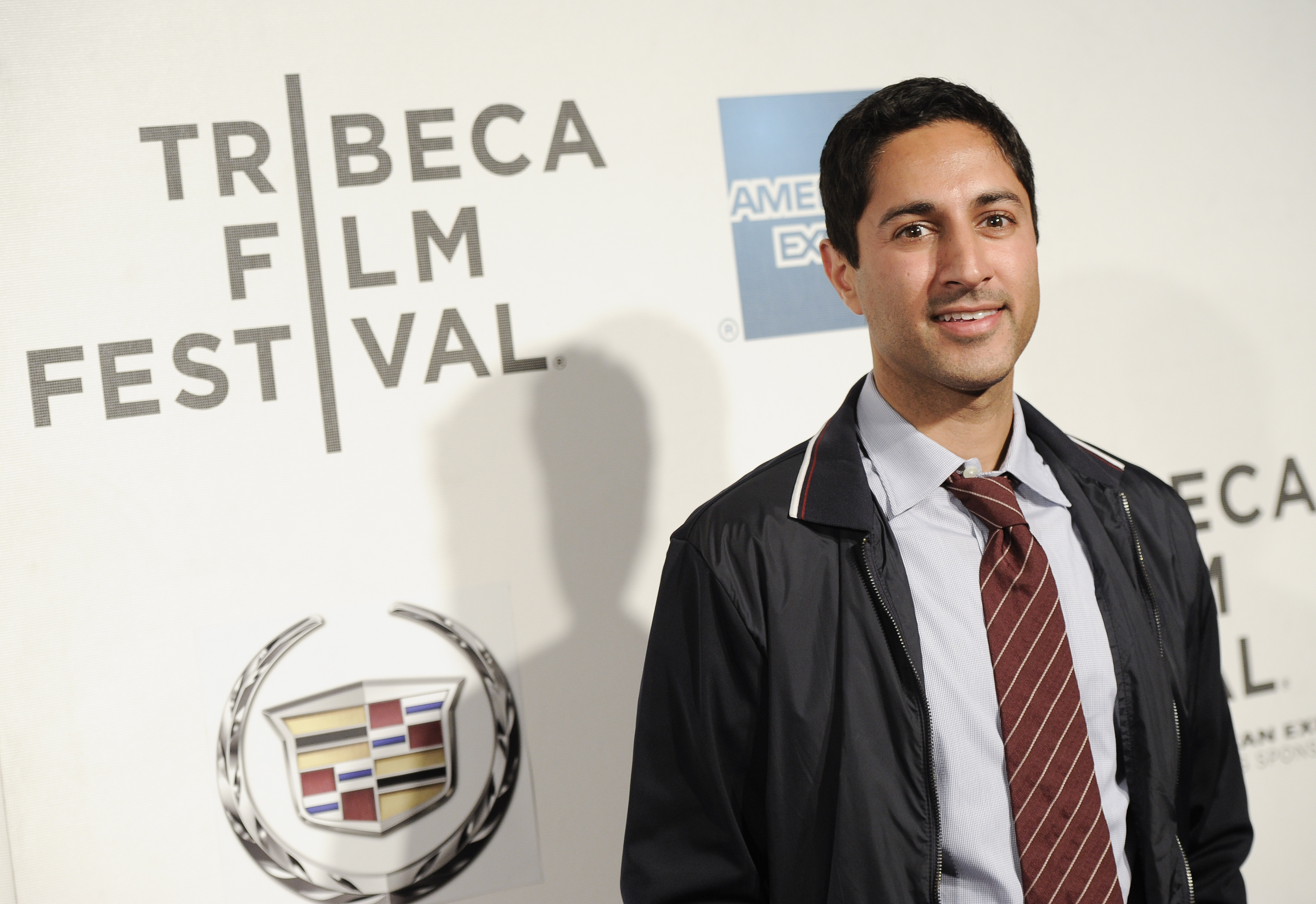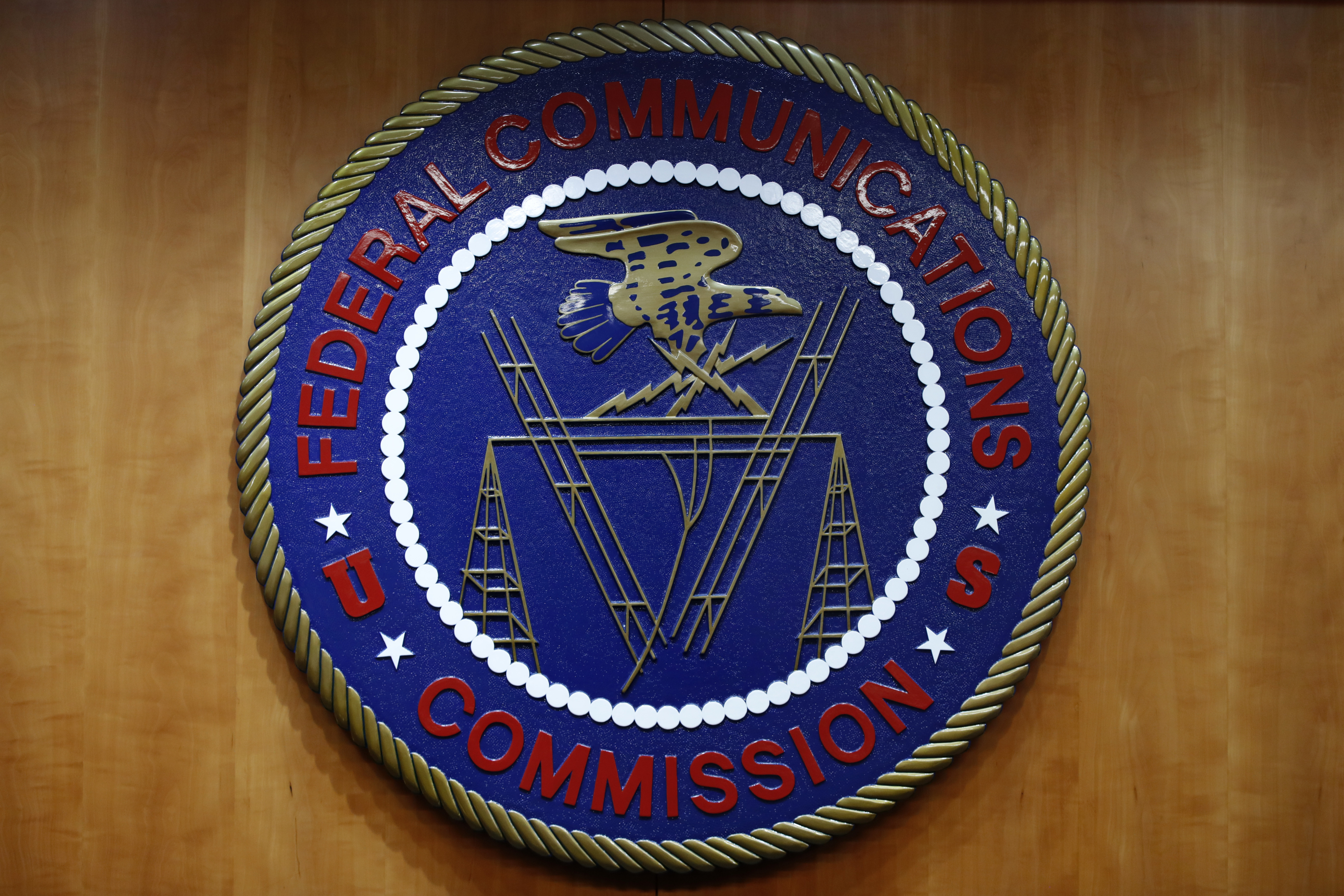On Monday, millions of Americans will look up to watch the moon completely cover the sun. For a couple of minutes, the sky will become dark. Birds will flock to their nests. The temperature will drop significantly. Bright stars and planets will come out of hiding.
It's a celestial event astronomers have spent years preparing for and so-called "eclipse chasers" from all over the world have booked up hotel rooms in its path months, even years, in advance. Some have changed their lives for it.
"I retired at the end of last year because of this eclipse," eclipse chaser and amateur astronomer Jackie Beucher said.
Bolivia, Aruba, Greece, Siberia, China, Australia -- Beucher has been around the world and said she’s seen at least eight total eclipses.
"It's a soul-searing experience," Beucher said.
She was in Hawaii when she saw her first total eclipse on July 11, 1991. Twenty-five years later, Beucher still remembers the "very, very strange" moment when birds went to roost and frogs began chirping. But most eerie, she said, was that the waves on the coast of Maui died down.
"You can never be ready for it," she said. "You see that black hole in the sky and then the corona bursts out and it's like it just hits you straight to your soul. And I'm sitting here at my kitchen table with goose bumps all over me just thinking about it."
U.S. & World
This year, Beucher won’t have to travel far to get those goose bumps. The path of the eclipse is headed right through her hometown of Kansas City, Missouri.
Millions of Americans from Salem, Oregon, to Charleston, South Carolina, will be able to see it, according to NASA.
With so many Americans in the path of totality, Beucher has made it her mission to convince as many people as possible to make an effort to see it. She’s become an eclipse evangelist of sorts, giving talks and lessons to the public.
"I start off my sermon and I say, 'How many of you are planning to go to see totality?' And I say, 'Well, I'm here today to try to convince you to make the effort.'"
An entire generation of Americans haven't seen a total eclipse. The last time totality passed over the contiguous U.S. was in 1979.
"There's no question that this will be by far the most-witnessed total solar eclipse in America’s history," said David Baron, eclipse chaser and author of "American Eclipse."
Baron said many people have seen lunar eclipses in their lifetime, in which the moon passes behind the earth, and many have seen a partial solar eclipse, when the moon covers part of the sun.
"That's all very interesting," but something much different happens during a total solar eclipse, according to Baron.
"The best way I can describe it is like you are suddenly transported to another planet and you are looking at a completely alien sky," Baron said. "When the moon's shadow moves in, it pulls the blue sky away and it enables you to look toward the center of the solar system to see the stars, to see the planets and our sun together and you'll see the sun like you've never seen it before."
The sun's outer atmosphere, the corona, is the star of the show during a total eclipse. According to NASA, astronomers have made many scientific discoveries while studying the corona during solar eclipses.
And for eclipse chasers, the moment they witness the halo around the sun is everything.
"It feels like I am seeing God. It's that intense," said Baron, who admits he isn't religious. "You have a sense of how enormous and grand and beautiful the universe is and how tiny and insignificant you are as a human being."
But the moment is sometimes difficult to put into words.
"You have this feeling and it comes, you know, from the middle of your chest where your heart is... man, it hits you there," Beucher said.
"I can't describe the feeling and the compulsion that you get when you see one and you want to see it again. It just drives you. It’s so meaningful," said Kate Russo, a psychologist from Australia who became fascinated by eclipses after seeing one on the coast of France in 1999.
Like Beucher, Russo was infatuated after her first eclipse sighting.
"I really did not expect that I would become an eclipse chaser. I didn't expect that I was going to be hooked on them. And I didn't really expect that it was going to be so profound and that it would really change my life," said Russo, whose book "Being in the Shadow" shares people's personal stories of their first time seeing an eclipse.
Russo said she wrote her book because "people just didn't get it" when she would come back from an eclipse trip and try to explain to them what it was like.
It was through her work as a psychologist for families experiencing loss that she says she realized why she was so moved by the eclipse experience.
"You really understand [life is] precious when you're about to lose someone. This would be my day job where I was having these profound insights, but these were the same insights I was getting every time I was experiencing totality, without the loss," Russo said. "It really made me think about the total eclipse as something really really unique as a human event and it made me fascinated by it even more."
How Can I See It?
To see the total eclipse on Aug. 21, you’ll have to be in the path of totality. The 70-mile-wide path will cross through Oregon, Idaho, Wyoming, Montana, Nebraska, Iowa, Kansas, Missouri, Illinois, Kentucky, Tennessee, Georgia and North and South Carolina. All of North America that’s outside of the path will be able to see a partial eclipse.

"Here in the D.C. area, we're going to get about 85 percent coverage, which is a lot, but we're still gonna have plenty of light outside," said NBC4 Chief Meteorologist Doug Kammerer said. "You will notice it if you're out in the D.C. area."
Kammerer is going down south to Clemson, South Carolina, to see the total eclipse and bring the experience to NBC4 viewers.
"This is history. This is something that I may never see again in my lifetime," Kammerer said.
Safety First
Remember when you're watching the eclipse to never look directly at the sun, except during totality.
NASA recommends going to local science museums, schools or astronomy clubs to find free eclipse glasses.
You can also check out NASA's website for more ways to view the eclipse safely.
And be prepared to get hooked.
"They do say it's a once in a lifetime event and that is absolutely true, but you don't have to limit it to just once in a lifetime," Russo said. "You too can become an eclipse chaser. We welcome you with open arms!"



